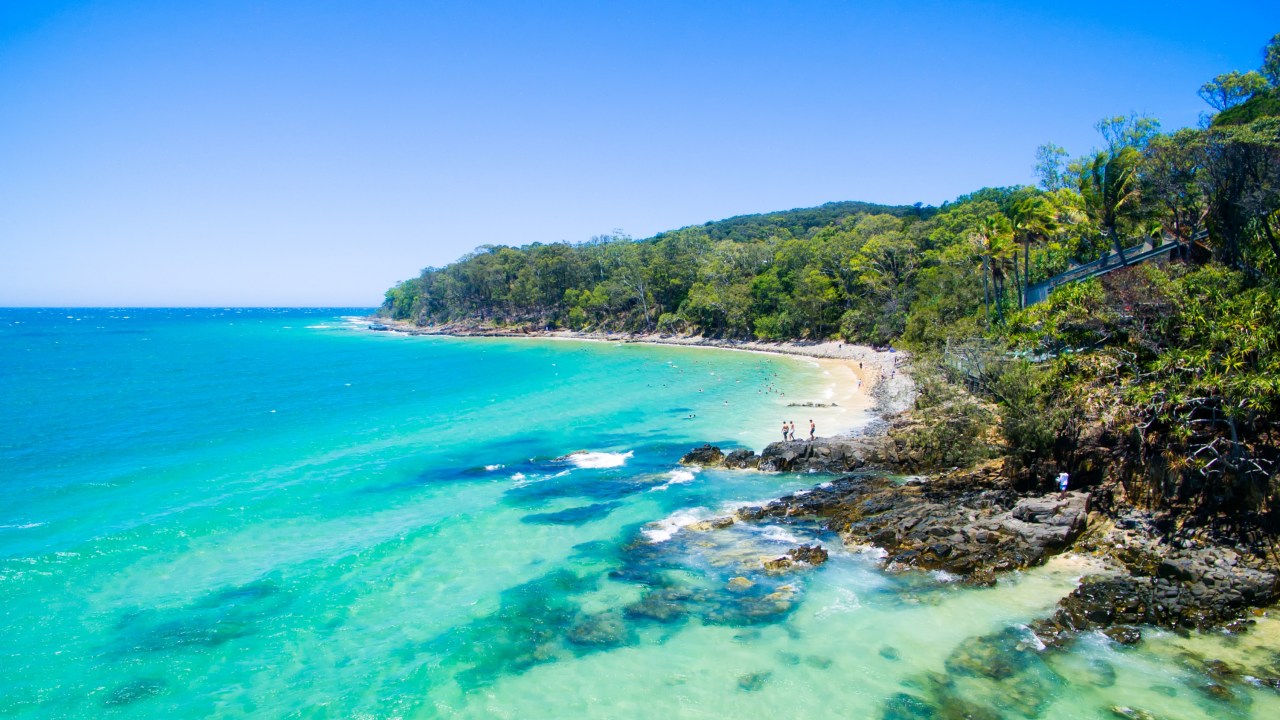The Federal Court in Queensland has formally recognised a native title claim from the Kabi Kabi people, granting them non-exclusive rights to over 365,345 hectares of land and water along some of the state’s most popular costal destinations.
Shadow Indigenous Australians Minister Jacinta Nampijinpa Price calls for reform on the Indigenous native title laws.
“In terms of native title, while it was well intended … it was very narrow in terms of what else Indigenous Australians could do,” she said.
“It was very limited scope … it is why we have some of our most marginalised Indigenous Australians exist in remote places like the Northern Territory … I truly believe we need reform.”
Monday’s ruling brings to an end a more than a decade long battle for recognition, with the Indigenous group first lodging their claim in 2013.
It grants the Kabi Kabi people non-exclusive rights to an area including some of Australia’s most well known tourist hotspots; Gympie, Noosa, Maroochydore, Caloundra, Bribie Island, and Mudjimba Island are all encompassed in the claim.
The Federal Court in Queensland has granted native title rights to the Kabi Kabi people for a more than 365,345 hectare area of land and water on the Sunshine Coast. Picture: iStock
Justice Berna Collier told the court she was satisfied the group “have and always have had native title rights and interests in this country”, adding they had maintained ties with the land since before European settlement up until the present day.
“I congratulate everyone involved for reaching agreement in this matter, but in particular the Kabi Kabi people whose native title rights and interests have today received deserved recognition,” she continued.
While the Justice noted her ruling did not confer “possession, occupation, use or enjoyment to the exclusion of all others, including other interests as defined in the judgement and which continue to have effect”, the decision did mark a first for south-east Queensland.
That is because the right to “take resources from the area for any purpose”, was included for the first time in Monday’s judgement, with previous decisions in the region limiting the right to personal, communal and non-commercial purposes.
Monday’s ruling brings to an end an almost decade long battle for recognition, with the Kabi Kabi people first lodging their claim in 2013. Picture: Liam Kidston
However, they will not affect use of the land by existing non-Indigenous owners, while the Queensland government has also confirmed freehold land will not be impacted by the decision.
Native title rights and interests are subject to both state and Commonwealth laws, as well as the traditional laws and customs of whichever Indigenous group lays claim to the region.
Earlier in June, Attorney-General Mark Dreyfus announced the government was conducting a review of the Native Title Act, with the Australian Law Reform Commission tasked with identifying any “inequality, unfairness or weaknesses” in the legislation.
The investigation comes amid arguments from some prominent Indigenous Australians that the government should amend the law to allow native title holders to use their land for commercial purposes and to build and own their own homes.
Sky News Northern Australia Correspondent Matt Cunningham says Prime Minister Anthony Albanese is “keen” to clear up any controversy about how funding for Alice Springs will be spent.
The Prime Minister insists hundreds of millions of dollars committed to Central Australia will help address issues in Alice Springs.
There are concerns about how the $250 million announced last year is being spent.
“He was yesterday attending the Central Australian Aboriginal Congress and the new health hub there that has received funding as part of that deal,” Mr Cunningham said.
“Mr Albanese says that the feedback he is getting is that this money that was committed when he travelled to Alice Springs last January is having a positive impact.”
Speaking to Sky News Australia, shadow Indigenous affairs minister Jacinta Nampijinpa Price welcomed the move, but argued more needed to be done to help “land rich, dirt poor” communities become self-sufficient.
“In terms of native title, while it was well intended, and it’s all very nice to be able to have, you know, access to your land as a traditional owner to fish and hunt. It was very narrow in terms of what else Indigenous Australians could do,” she said.
“Ideas such as economic development, economic independence, the opportunity to generate wealth from one’s own land. It was a very limited scope to be able to do that to begin with.”
Senator Price added Indigenous groups were “effectively landlocked in how we can and cannot use our land”, but said she would “happily” work with the Albanese government on reforms to allow communities to further their own development.

